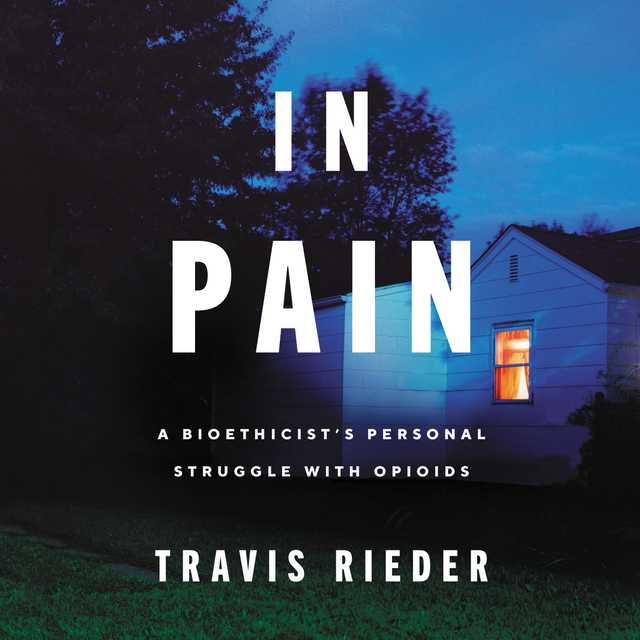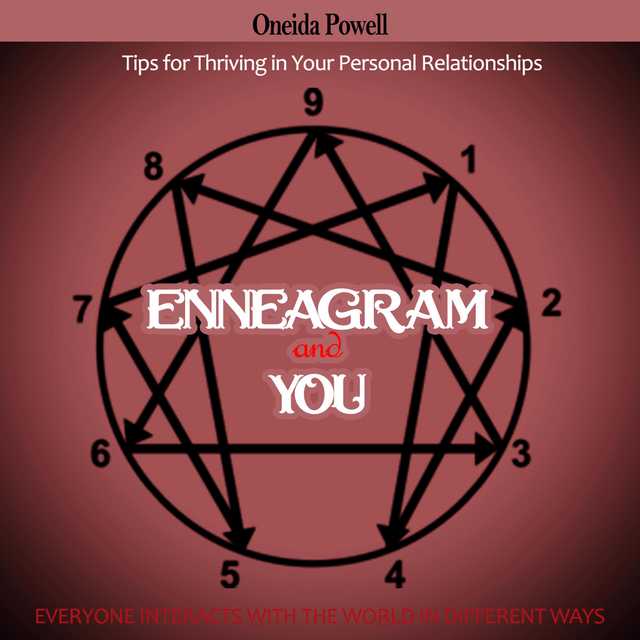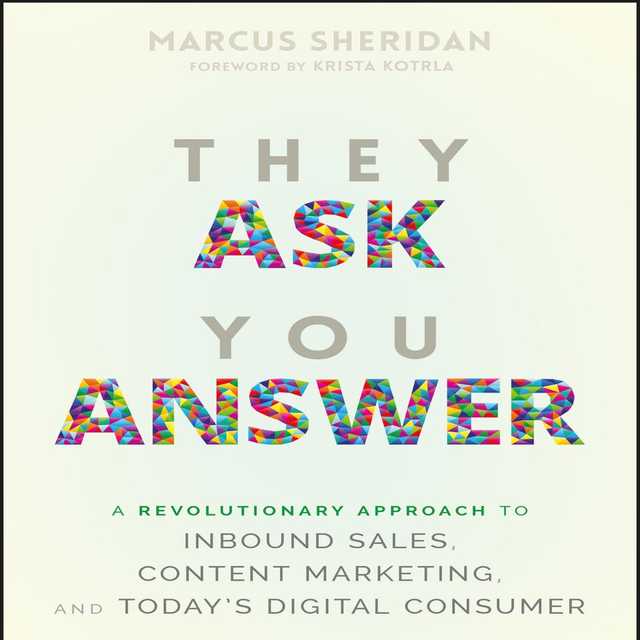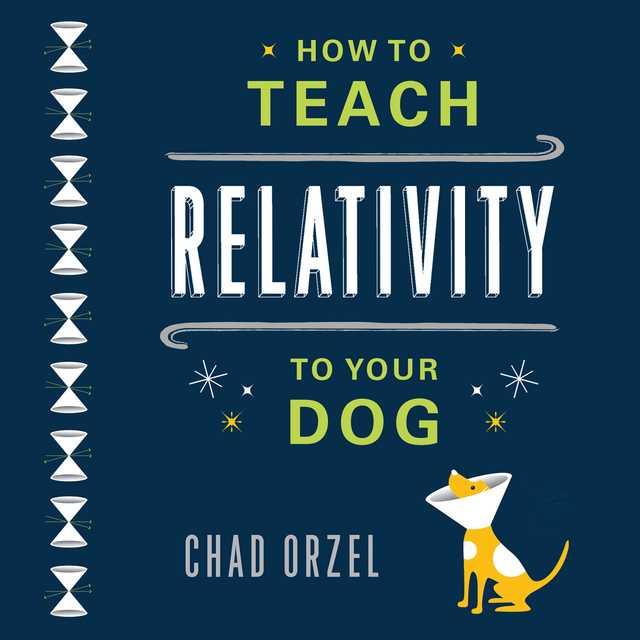In Pain Audiobook Summary
A bioethicist’s eloquent and riveting memoir of opioid dependence and withdrawal–a harrowing personal reckoning and clarion call for change not only for government but medicine itself, revealing the lack of crucial resources and structures to handle this insidious nationwide epidemic.
Travis Rieder’s terrifying journey down the rabbit hole of opioid dependence began with a motorcycle accident in 2015. Enduring half a dozen surgeries, the drugs he received were both miraculous and essential to his recovery. But his most profound suffering came several months later when he went into acute opioid withdrawal while following his physician’s orders. Over the course of four excruciating weeks, Rieder learned what it means to be “dope sick”–the physical and mental agony caused by opioid dependence. Clueless how to manage his opioid taper, Travis’s doctors suggested he go back on the drugs and try again later. Yet returning to pills out of fear of withdrawal is one route to full-blown addiction. Instead, Rieder continued the painful process of weaning himself.
Rieder’s experience exposes a dark secret of American pain management: a healthcare system so conflicted about opioids, and so inept at managing them, that the crisis currently facing us is both unsurprising and inevitable. As he recounts his story, Rieder provides a fascinating look at the history of these drugs first invented in the 1800s, changing attitudes about pain management over the following decades, and the implementation of the pain scale at the beginning of the twenty-first century. He explores both the science of addiction and the systemic and cultural barriers we must overcome if we are to address the problem effectively in the contemporary American healthcare system.
In Pain is not only a gripping personal account of dependence, but a groundbreaking exploration of the intractable causes of America’s opioid problem and their implications for resolving the crisis. Rieder makes clear that the opioid crisis exists against a backdrop of real, debilitating pain–and that anyone can fall victim to this epidemic.
Other Top Audiobooks
In Pain Audiobook Narrator
Travis Rieder is the narrator of In Pain audiobook that was written by Travis Rieder
Travis Rieder, PhD, is faculty at the Johns Hopkins Berman Institute of Bioethics, where he directs the Master of Bioethics degree program.
About the Author(s) of In Pain
Travis Rieder is the author of In Pain
More From the Same
- Publisher : HarperAudio
- Abraham
- American Gods [TV Tie-In]
- Dead Ringer
- House of Sand and Fog
- Prey
In Pain Full Details
| Narrator | Travis Rieder |
| Length | 8 hours 56 minutes |
| Author | Travis Rieder |
| Category | |
| Publisher | HarperAudio |
| Release date | June 18, 2019 |
| ISBN | 9780062939548 |
Subjects
The publisher of the In Pain is HarperAudio. includes the following subjects: The BISAC Subject Code is Biography & Autobiography, Medical
Additional info
The publisher of the In Pain is HarperAudio. The imprint is HarperAudio. It is supplied by HarperAudio. The ISBN-13 is 9780062939548.
Global Availability
This book is only available in the United States.
Goodreads Reviews
Malia
February 05, 2020
This is a fascinating book and one I would recommend to anyone trying to better understand the opioid crisis and addiction in general. The author writes honestly and in a way that felt compassionate and informative at once. He is frustrated, but does not easily cast blame, though he must have gone through hell. It made me better understand that addiction, in particular addiction to prescription pain killers, could happen to anyone, and that addiction to any substance has the underlying cause of the user needing to fill a void, to salve a pain, to distract from hurt. It is a very humanizing, thoughtful, and enlightening book and one that will remain with me for some time to come.Find more reviews and bookish fun at http://www.princessandpen.com
Morgan
February 10, 2022
In Pain is FUCKING BRILLIANT and BRUTAL. This is my favorite kind of book about mental health issues of any sort. An educated third person “objective” perspective (the author Travis Rieder is a bioethicist) blended with honest, vulnerable writing from the first-person “subjective” perspective (Rieder experienced extreme acute pain due to an awful motorcycle accident, and chronic pain occurring in the months and years that followed).Rieder describes his pain experiences from the first person (phenomenological) perspective. And let me just tell you. It’s very effective writing.I didn’t literally “feel” what he described.But it got me about as close to that experience as reading someone’s words, and empathizing with them could. The writing is so explicit, and so descriptive, (without being at all gratuitous) that I was literally writhing and wincing again and again.Without knocking you over the head with it, he really makes you understand how fucking bad that experience was. And it was FUCKING bad.To say it was a living hell (for whatever that tired old cliché is actually worth) would be accurate. This book is worth it just for that stuff alone.But that is quite simply, only the vestibule at the front door of hell. Only the very beginning of a long descent into the ravages and prolonged suffering of every shade and variety that he endured. In fact, Rieder speaks of the many varieties of pain with the expertise and specificity of a fine wine connoisseur. Rieder’s descriptions are almost poetic at times, full of imagistic metaphor, not for gratuitous esthetic effect, but out of pure necessity, because other, more clinically “precise” descriptions simply fail at this frontier of communication.Although this type of writing and self disclosure is quite contrary to Rieder’s training as an academic philosopher. It is clear that if he stayed to academic form, and was as such, unwilling to “come out” and speak honestly from his raw first person experience, it would amount to another type of intellectual dishonesty and failure via omission. And so, he made the extremely brave decision to serve the brutal, tender, honest realness of his darkest hours, along with reasonable, modulated, thoughtful passages, without being dramatic or pedantic.Hence the “Brutal” and “Brilliant” adjectives that bookend this review. This book also contains some of the best phenomenological writing on opioid withdrawal that I am aware of.Rieder became dependent on opioids over the course of his protracted pain management, and then was advised to abruptly discontinue them by a doctor (of all people). Advice that was so woefully incompetent that I was LITERALLY face palming and saying NO out loud. SNOL? I guess?Anyway One of the BIG problems (probably the biggest problem) with opioids (and all drugs of abuse for that matter, but particularly opioids) is that they disable the brain and body‘s natural ability to do what the drugs do for you. Opioids do stuff like modulate pain, slow bowel motility, enhance sleep and promote euphoria. So another words. Opioids: - take away the pain - make you feel peaceful and care free- make you sleep like a baby - they are a nice decongestant- and they make it so you can’t poop (huge problem that you can die from)In opioid withdrawal, you get the equal and opposite rebound effect. In Opioid Withdrawal:- you’re extremely pain sensitive (hyperalgesia) - you feel dysphoric (suicidal even) - you can’t sleep (often for days on end)- your eyes and nose run like gooey rivers- you have chronic diarrhea - extremely painful vomiting and dry heavingI have worked with hundreds of opioid addicts. Many report that they would rather die than experience precipitated opioid withdrawal again.Detoxing from any drug is rough. Try skipping caffeine for a few days if you don’t believe me. Detoxing from alcohol and benzodiazepines can be fucking deadly. It can literally kill you. Withdrawing from opioids is rarely deadly.But people do crazy stuff to avoid that misery. Including suicide. Kicking dope is no joke.And the real kicker here, is that Rieder was completely unaware, and completely unprepared for any of this.All the guy needed was a little bit of education, and a little bit of support, and maybe just a little bit of medicated assisted opioid withdrawal. And he would’ve been spared an awful misery.But…He (under explicit directives of his doctor) made some of the most harmful, and dangerous mistakes you can make. For instance, his primary physician advised him to taper down over the course of a week or so.That’s the equivalent of advising somebody to jump off a 10 story building, 2 or 3 floors at a time. NO! Take the FUCKING stairs for fucks sake. ONE STEP AT A TIME! In other words, a medically indicated opioid taper takes weeks, or even months, or even longer in some cases. Abrupt opioid discontinuation is the ULTIMATE rookie move. And it almost killed the guy. That’s right, he became severely depressed and suicidal. Any addiction professional could have seen that coming a mile away. The problem was. Rieder wasn’t in addiction treatment.Because…Rieder wasn’t an “addict”.He wasn’t stealing from his grandma‘s purse, or turning tricks, or dealing to grade schoolers, or (insert any of the myriad dehumanizing clichés about addicts here) to buy heroin.He wasn’t misusing the medications.He didn’t like being on the opioids.He desperately wanted to be off of them. He was simply a “regular guy” who was trying to get off of a prescribed medication. So when his medical team suggested that his opioid withdrawals were “not their problem” and directed him to addiction treatment, he rightfully balked. Although, if he had gotten just a little good advice and support, his experience of withdrawal would’ve been much less dangerous and awful. One of the benefits (if you could call it a benefit) of being a heroin “addict” is that you are probably inside a community of people who (one way or another) understand stuff like opioid withdrawal. In other words, junkies know how to kick dope. At least they know how not to. And of course, if you are engaged in good treatment (hard to find but certainly out there), your team will educate you as to what to expect in opioid withdrawal, and provide you with guidance, a taper schedule, and medications to make that experience MUCH more survivable.The problem is, you’ll get a bunch of shitty therapy and a bunch of 12 step jammed down your throat.And for a guy like Rieder.None of that sounded necessary or appropriate.And he may have actually been right.Lots of people get strung out on prescription opioids. But that doesn’t mean that they are addicted (a terrible and completely dysfunctional word to be sure). People like Rieder would be better described as having complex protracted opioid dependence. But probably not substance use disorder. So does someone like Rieder go get on methadone? Or go to residential treatment?All the guy needed was just a little good advice.And maybe some buprenorphine.And perhaps a little sleep medication. And some good support. And we’re done. In addition to being an amazing memoir.This is some of the most interesting and compelling writing about the medical and social systemic aspects of the opioid epidemic and opioid use more generally, that I am aware of.It’s a thoughtful, balanced, and fair accounting of the relative use value and risks associated with pain management. Rieder discusses the benefits and problems with scientific and medical reductionism. The Benefits of Reductionism: - you can identify, isolate and control variables.The Problem of Reductionism: - you can’t see the forest through the trees. The Problem With Reductionistic Medicine:- the image of the “whole person” in the environment gets lost.Rieder also discusses the merits of the systems perspective, and the benefits of integral medicine, without outright referring to it as such.Probably most importantly, Rieder describes the dangers of the stigma surrounding opioids and drug use in general. And the need for rational, evidence-based, prescribing practice, which includes medically assisted withdrawal, with the responsibility of withdrawal management placed squarely on the prescriber.Rieder doesn’t blame medical clinicians, he has a broader more systemic view than that. But he does call for reform of the current system, and ascribes responsibility for educating and assisting clients in their detox efforts to the prescribing clinician. Um… Yes! Additionally, Rieder advocates for better addiction treatment. Including harm reduction policies that decriminalize, and even legalize drugs like heroin, and provide clean needles and safe places for people to use, so that they don’t catch diseases and die, and so that they can get access to good information, and addiction treatment if they want/need it. Um… Yes, yes, yes, and hell yes! This is a long review. But this is a really fucking important book. I’d say it’s the best one of these that I know about. I think it is the perfect counterbalance, to Dr. Carl Hart’s Drug Use For Grownups (read my review of it here - https://www.goodreads.com/review/show...)I read these two books back to back.I highly recommend doing exactly that.If I ever teach another course on the bio/psycho/social/systemic issues pertinent to drug use and addiction, I will make these two books required reading. I will end this review like I started it. In Pain is FUCKING BRILLIANT and BRUTAL. 5/5 STARS ⭐️
Carrie
December 04, 2019
Great!
Melody
December 13, 2020
Really well-done. Shines a clear light onto the opioid crisis both global and personal. Strong bias toward evidence-based science always works for me, and this book has it in spades. Rieder's suggestions are humane and actionable.
Katie/Doing Dewey
November 05, 2022
Summary: Both the personal story and the thoughtful analysis in this book made it a clear favorite of the books I've read on the opioid epidemic.This memoir by a bioethics research is by far the best book I've read about the opioid epidemic. Author Travis Rieder was in a motorcycle accident, after which he was prescribed opioids that he struggled to stop taking. One obvious strong point of this book is that personal perspective. The author does an incredible job of getting you to image you're going through what he experienced. His descriptions of his thoughts and physical sensations were explained very clearly. His description of his accident and of withdrawal were equally terrifying. Together, the two experiences viscerally demonstrated the power of opioids to help and to harm.In addition to the personal perspective the author brought to this story, I was surprised by how much I appreciated the parts that drew on his training as a bioethicist. He talks about the concept of pain, showing how the lack of subjective measures of pain complicate the way doctors prescribe opioids. He also discusses how this subjective assessment allows room for bias in doctors' reactions. The book wraps up with a great discussion of the moral obligations doctors have to their patients; the different incentives currently influencing doctors; and ways doctors and patients can work to fix this broken system.This was by far the most thoughtful and nuanced discussion of the problems contributing to the opioid epidemic that I've read. The author does an incredible job humanizing these ethical questions through his own experience. The combination of personal experience and analysis made this an engaging, informative nonfiction read. If you want to understand the events related to the latest opioid epidemic, I think Dopesick gives a more thorough accounting of the big picture story. However, if you're just going to read one book on the opioid epidemic, I'd encourage you to pick this one.This review was originally posted on Doing Dewey
L. Scott
July 21, 2019
This book should be mandatory reading for anyone in the U.S. Healthcare system for any length of time, either as provider, insurer, or patient. Primarily a research paper worked into a book for the layman into the roles and responsibilities doctors and other health care workers have (or ought to have) in managing pain and managing pain medication. The author's personal introduction to the topic via a motorcycle accident and his subsequent treatment played a pivotal role in this book getting written, and it is featured prominently and movingly throughout the book.
Marcus
May 20, 2019
This is the kind of book that comes along only very rarely. It is both a first-personal, non-fictional account written with the eloquence and imagery of great fiction and an educated and thoughtful reflection on significant policy debates that are constantly on the front pages of the nation’s newspapers. The book somehow seamlessly accomplishes both tasks, clarifying the complex without sacrificing nuance. It is an eloquent and riveting account of opioid dependence that deftly integrates history, philosophy, policy, and narrative in order to provide a new way of considering one of the defining crises of our age. Regardless of how much you know about one of the greatest epidemics in American history (and the numbers are staggering: more dead in one year than in any year at the height of the AIDS epidemic, more dead in one year than the total American dead during the whole of the Viet Nam War), this book will change the way you look at that crisis.
Cora
August 31, 2019
I little clunky at times, but the author has a compelling story and thoughts on opiates.
David
September 07, 2020
In Pain: A Bioethicist's Personal Struggle With Opioids by Travis Rieder (Harper Collins 2019) (362.293) (3459). Author Travis Rieder is a philosopher who earned a doctorate in Medical Bioethics. He was a young father when he crashed a motorcycle and crushed his foot. He was forced to undergo multiple invasive surgeries in what his surgeons termed an attempt to “salvage” as much of his foot from amputation as they could but that he clearly would never walk again.Rieder bought into the idea of the doctor and patient working as a team to produce the best possible result for the patient. After all, the first part of the Hippocratic Oath taken by all physicians includes the ironclad rule of “First, do no harm.”Reider learned that, with a great deal of painfully hard physical therapy, the scope of his recovery was not as limited as he had been told. But a bigger problem remained: How to safely discontinue the use of the absolutely necessary opiate and opioid pain medicines which had been prescribed.For Travis Rieder had accidentally become an opioid addict from taking the medicines prescribed by his physicians. And what he then encountered was terrifying: the fact that the American medical establishment has no clue how to successfully taper patients off of prescribed opioid medicines. Indeed, when Reidel sought assistance (or even advice) from his medical providers on how to safely discontinue the use of the pills they had prescribed to him, every single doctor uniformly disclaimed any responsibility for any of their patients' addictions. Incredibly, each prescribing physician claimed that it was someone else's responsiblity to oversee a patient's controlled detoxification by tapering or weaning the patient off the narcotics without creating withdrawal pain so intolerable that the healing process is compromised. Most importantly, none of these medical providers were able to come up with the name of any medical provider or service that would ultimately be responsible for patient care during withdrawal from medically prescribed opioids.The author makes the point that patients in this position have effectively been completely abandoned by the medical system. And as Rieder points out, when a portion of these patients are refused further medications by their prescribing physicians, the patients find that they are unable to successfully taper off of opioids on their own. Without further prescriptions forthcoming from the medical establishment, these patients turn to the street market for extremely dangerous substitutes which often means heroin contaminated by even more powerful opioid analogues.According to the author, the “gold standard” for treating opioid addiction (also known as “opioid use disorder”) is MAT, or medication-assisted treatment. MAT combines traditional recovery strategies with one of three types of medications: (1) Methadone, which is a “full opioid agonist”, meaning that it acts on the brain like all other opioids by activating the opioid receptors and causing all of the effects of other opioids (it gets you high). This is simply a maintenance treatment which won't get anyone off of opioids but it will keep them away from contaminated street drug substitutes; (2) Buprenorphine is a partial opioid agonist which means that it won't activate all of the brain's opioid receptors, but it gives the brain enough to forestall withdrawal; and (3) Naltrexone, which is an opioid antagonist. It blocks the patient's opioid receptors so that the opioids cannot bind with the brain. Naltrexalone does not treat dependence or fend off withdrawal. It defends against the use of opioids by making it impossible for the user to get high in the first place. (Note: this drug is effective only if the patient was clean and abstinent to begin with.)A fourth important tool in the medical kit is the drug Naloxone, which is a virtual overdose-reversal medication. If given to someone who has overdosed, Naloxone works by knocking opioids out of the brain's receptors, thus reversing the sedating and euphoric effects of opioids.That's quite a lot to think about. Shame on the medical establishment for what it has created.My rating: 7.25/10, finished 9/7/20 (3459).
Gabe
May 18, 2021
This informative memoir is a very important addition to the conversation surrounding opioids. I highly recommend to anyone in healthcare, public health, or those touched by the opioid crisis. It explores the history of opioids, attitudes and stigma toward addiction, and the confusing position providers are put in. His story and background combine to give him such a unique perspective. He addresses his own privilege and how easily he could have succumbed. I related to some of the passages about how scary desperation can be. We seem to have put doctors in this uncomfortable position. We either over and under prescribe and then lost in that debate is the question of how to prescribe and manage effectively. It is an ethical imperative by the prescribing doctors that we must not leave people hanging... That improper management of duration and withdrawl is fueling this epidemic. It's not anyone's fault persay as this is a gap in medical education... but those prescribing useful and necessary pain medication have to take more responsibility.
Lynn
July 30, 2020
Travis Rieder loved his motorcycle but knew his wife had reservations and now that they had a baby daughter, he agreed to give it up sometime, in the future. One day a van hit his motorcycle and his foot was crushed. He was wearing boots and he insisted in taking it off not heeding a bystander begging him not to. The foot became ungloved, meaning the skin peeled off. The pain was unbeatable and through several surgeries he was given opioids for the pain. He needed them but eventually it became apparent he was dependent with minimum direction from a doctor, it took him four weeks to wean himself off going through terrible withdrawal. Through his experience as well as his professional training he began to take a look at the opioid crisis and how he and others are left to deal with addiction. He doesn’t believe doctors are equipped to deal with it and not very obligated to help patients. He has some ideas.
BookStarRaven
February 22, 2022
Continuing my deep dive into addiction and the opioid crisis, In Pain by Travis Rieder is a look at how opioid might occur to anyone. Rieder, a bioethicist, was hit by a van while riding his motorcycle causing traumatic injury to his foot. During the five surgeries he was on many different powerful drugs to manage his pain. This book is very well written and keeps you hooked from the first page. Rieder does an excellent job explaining pain and how his pain affected him physically and emotionally. Once he begins his recovery and decides to get off the pain medication, he realizes his full dependence on the opioids. His withdrawal was torturous, and he received no help from any of his doctors. They all claimed helping him get off the drugs THEY put him on “wasn’t their job.”This book gives an insider investigation the gaps in our system and the lack of support for those who want to taper off opioids and other dependent drugs.I would recommend this book to anyone interested in addiction, the opioid crises, or drug dependency.
Most Popular Audiobooks
Frequently asked questions
Listening to audiobooks not only easy, it is also very convenient. You can listen to audiobooks on almost every device. From your laptop to your smart phone or even a smart speaker like Apple HomePod or even Alexa. Here’s how you can get started listening to audiobooks.
- 1. Download your favorite audiobook app such as Speechify.
- 2. Sign up for an account.
- 3. Browse the library for the best audiobooks and select the first one for free
- 4. Download the audiobook file to your device
- 5. Open the Speechify audiobook app and select the audiobook you want to listen to.
- 6. Adjust the playback speed and other settings to your preference.
- 7. Press play and enjoy!
While you can listen to the bestsellers on almost any device, and preferences may vary, generally smart phones are offer the most convenience factor. You could be working out, grocery shopping, or even watching your dog in the dog park on a Saturday morning.
However, most audiobook apps work across multiple devices so you can pick up that riveting new Stephen King book you started at the dog park, back on your laptop when you get back home.
Speechify is one of the best apps for audiobooks. The pricing structure is the most competitive in the market and the app is easy to use. It features the best sellers and award winning authors. Listen to your favorite books or discover new ones and listen to real voice actors read to you. Getting started is easy, the first book is free.
Research showcasing the brain health benefits of reading on a regular basis is wide-ranging and undeniable. However, research comparing the benefits of reading vs listening is much more sparse. According to professor of psychology and author Dr. Kristen Willeumier, though, there is good reason to believe that the reading experience provided by audiobooks offers many of the same brain benefits as reading a physical book.
Audiobooks are recordings of books that are read aloud by a professional voice actor. The recordings are typically available for purchase and download in digital formats such as MP3, WMA, or AAC. They can also be streamed from online services like Speechify, Audible, AppleBooks, or Spotify.
You simply download the app onto your smart phone, create your account, and in Speechify, you can choose your first book, from our vast library of best-sellers and classics, to read for free.
Audiobooks, like real books can add up over time. Here’s where you can listen to audiobooks for free. Speechify let’s you read your first best seller for free. Apart from that, we have a vast selection of free audiobooks that you can enjoy. Get the same rich experience no matter if the book was free or not.
It depends. Yes, there are free audiobooks and paid audiobooks. Speechify offers a blend of both!
It varies. The easiest way depends on a few things. The app and service you use, which device, and platform. Speechify is the easiest way to listen to audiobooks. Downloading the app is quick. It is not a large app and does not eat up space on your iPhone or Android device.
Listening to audiobooks on your smart phone, with Speechify, is the easiest way to listen to audiobooks.






























